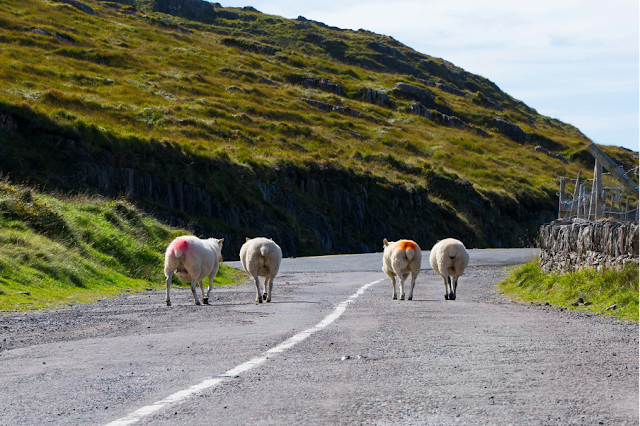Wondering - Jesus and Ikea
What would Jesus think of IKEA?
Last week, I assembled my first pieces from IKEA.
I know! Shocking, isn't it?!
What took me so long?
Just to clarify: I have shopped in IKEA before, buying things for other people. Temptations everywhere in that huge space!
I've enjoyed the vast array of items I never realised I was missing - things I might find handy were I to buy them! I have admired the clean lines of their furniture. I've dreamt of having an empty home to decorate with the simple beauty of IKEA's designs - and a full wallet to achieve that dream.
On a morning both extremely warm and extremely rainy, my Billy bookcases arrived and so began the process of putting them together. I have always enjoyed self-assembly. There's something very satisfying about it. Perhaps it appeals to that part of me that enjoys jigsaws and puzzles. It cultivates both mindfulness and mindlessness.
Mostly, this time, it was a state of mindfulness.
As I hammered the small tacks, I thought of our Lord.
Born and raised in the home of a carpenter, Jesus was surely familiar with the tools I used, albeit the versions of these in use in first century Judea. Somehow, being aware of this reality fostered a sense of shared lived experience, of knowing something of what Jesus knew in his early life. At the same time, my mind wandered to my Dad, someone also very familiar with these same tools and whose hands bore the marks of their use.
I began to wonder and, as I did, questions arose.
I wondered about Jesus.
I wondered why Jesus - described by those who encountered him as 'the carpenter's son' or 'the carpenter' (Matt 13:55; Mark 6:3) - speaks predominantly of farming, of vineyard-keeping, of nature and only rarely uses the language of carpentry or of other trades (Matt 7:24-27 and Luke 6:46-49 equate responses to hearing Jesus' words with the wisdom of building on rock or the folly of building on sand; Luke 14:28 mentions costing before building). Yet, Jesus never mentions the tools of the trade which he most surely learned in the home of Joseph in Nazareth.
I wondered about this teaching method. Why did the son of a carpenter favour images from nature over those of carpentry as a means to illustrate his teaching?
Perhaps, it is to aid better the understanding of his disciples.
Those Jesus chose as apostles were not tradesmen. That vocabulary may well have been lost on them. But neither were there farmers or farm labourers among the twelve. They were involved in fishing and in the collection of taxes. Although, Simon Peter and Andrew are told they will fish for people (Matt 4:19), this promise is the only time Jesus refers to their way of life. He doesn't use the language of their livelihoods in his teaching, even when instructing the disciples apart from the crowds. Jesus speaks not of nets and fish but of seeds and vines, of sowing and pruning, of reaping and harvesting.
Perhaps then Jesus' words are tailored to the ears of those Jews and Gentiles who flocked to encounter Jesus and listen to him. Yet, surely, not all who listened were farmers or vineyard-owners or worked on the land. Surely there were fishermen and craftsmen too.
Whatever the intent, these images are somehow timeless. Although many are far from the land and from the natural world, these examples still speak today.
But so too would images drawn from carpentry - to me, at least.
As I struggled with tightening screws, blisters on my palm began to threaten. They hurt! Even the tender skin can deter further efforts, make one anxious not to worsen the pain.
There's surely a parable in that!
Drawing on such experiences in teaching could surely lead hearers to wonder.
As I worked, I wondered about Jesus.
I wondered if Jesus shared the same sensations as I was now. Did he develop blisters that caused him to wince in pain? Did he hit his finger or thumb with a hammer? Did his hands grow tough and calloused from long hours of working with hard materials and tools? Did he enjoy the sense of achievement despite, or because of, the accompanying suffering?
I wondered and wondered. As I did, prayers arose - prayers of thanks, prayers of petition, prayers for forgiveness, prayers for others, prayers of joy and sorrow.
In my prayers, I thought, too, of my Dad. He was supremely handy and practical, able to turn his hand to most tasks and find a solution or a work-around, good at making and fixing. And his beautiful hands bore the scars - the ingraining of hard work and effort lined his hands. His were hands that were tough yet gentle too, fixing and healing, not just things but people and situations. For my Dad - thank you, God.
So now ... the task is complete ...
.... my Billys have been built ...
... my blisters will heal ...
.... and still I wonder ...



Comments
Post a Comment
Thank you for reading my writing. I'm interested to hear your thoughts - please share.